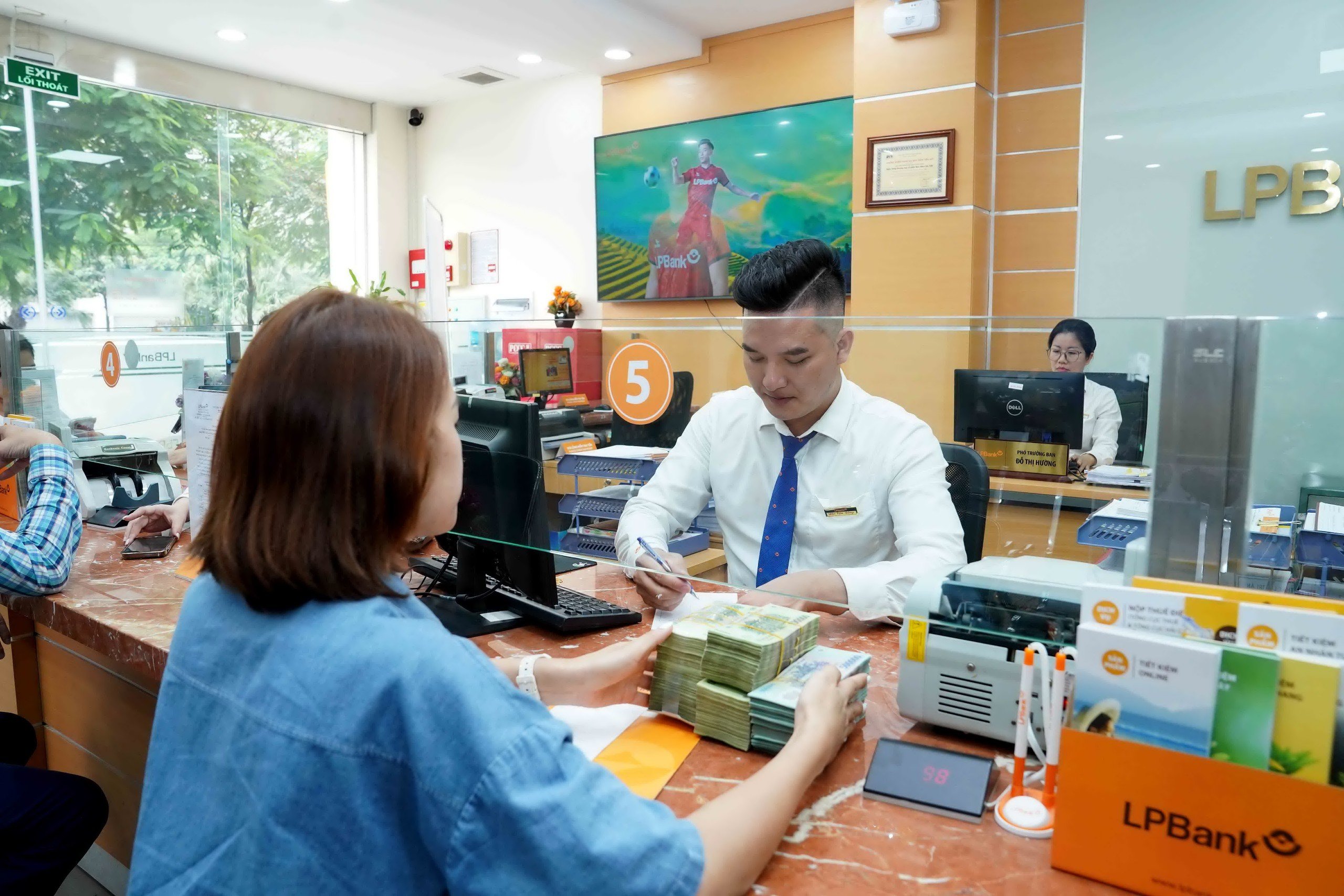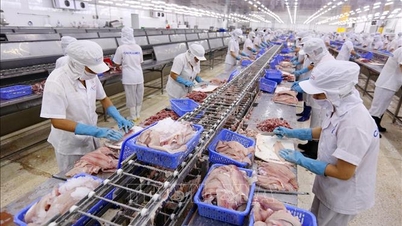A wave of interest rate cuts continues.
This time last year, savings and lending interest rates were soaring; this year, it's the complete opposite. Since the beginning of January, approximately 30 banks have reduced deposit interest rates to record lows. Agribank reduced interest rates for the second time in the past month, with a new reduction of about 0.2% per year, ranging from 1.8% to 5.3% per year. Recently, TPBank further reduced deposit interest rates by 0.2% per year, to 2.8% - 5.3% per year; MB reduced rates by 0.2% - 0.3% per year, to 2.5% - 6% per year…
Several banks have adjusted their savings interest rates downwards twice in January. For example, Eximbank reduced interest rates by 0.1 - 0.3% per year. The interest rate for 1-month deposits is now 3.4% per year, 3 months to 3.7%, 6 months to 4.6%, and 12 months to 5.1% per year… This is the second reduction by this bank in January. Similarly, VietBank also reduced savings interest rates for the second time, by 0.1 - 0.2% per year; Interest rates for 1-month terms are now 3.5%/year, 3 months 3.7%, 6-11 months 5%, and 12 months 5.3%… Techcombank also reduced interest rates for 1-2 month terms to 2.7%/year, 3 months to 3.3%, 6 months to 3.8%, 9 months to 3.85%, and 12 months or more to 4.9%...

The bank continues to lower interest rates.
Banks that were previously involved in the interest rate hike race have now lowered their rates. For example, LPBank is offering interest rates of 2-5.3% per year for terms from 1 to 24 months;SHB offers rates from 3-5.5% per year; and NAM A BANK offers rates from 3.1-5.9% per year…
It can be seen that the deposit interest rates for terms under 6 months at banks no longer reach the ceiling of 4.75%/year. The difference between short-term and long-term interest rates has narrowed, to around 2-3% instead of 5-6% as before. For terms of 12 months or more, banks also only offer around 5-6%/year. However, the situation where banks have higher short-term deposit interest rates than long-term rates still exists. For example, ABBANK offers a 6-month deposit interest rate of 4.8%/year, but only 4.2%/year for terms of 9 months or more. Similarly, MSB offers a 3-month deposit interest rate of 3.25%/year, but only 3.1%/year for terms of 6-9 months, and 3.5%/year for terms of 12 months or more. This is a bank whose interest rate table does not exceed 4%/year.
On the interbank market, interbank interest rates have also fallen to record lows. According to the latest announcement from the State Bank of Vietnam (SBV), the average interbank interest rate on January 24th for overnight maturities was 0.12%/year, 1 week 0.26%/year, 2 weeks 0.51%/year, 1 month 0.93%/year, 3 months 3.02%/year, and 6 months 4.02%/year. Despite the low interest rates, transaction volumes remained high, reaching 241,049 billion VND for overnight loans, 14,985 billion VND for 1-week loans, and 1,460 billion VND for 2-week loans. This is quite unusual compared to previous years. Normally, in January, interbank interest rates are high. At this time last year, interbank transaction interest rates ranged from 6% to 11.44%/year. Therefore, the current interest rate is about 6% lower per year than it was a year ago.
Borrow money... and get a reward.
Associate Professor Nguyen Huu Huan (Ho Chi Minh City University of Economics) commented that the decline in savings interest rates indicates that banks still have excess capital, and lending is difficult. Savings interest rates will continue to fall slightly and remain around their lowest point. "No one thought savings interest rates would hit rock bottom like this a year later. People's reluctance to spend has led to an increase in savings, while consumption and investment have decreased, resulting in savings exceeding investment and leading to stagnant capital. This psychological factor is impacting the market. When economic expectations are not very bright, people will be cautious and save for the upcoming difficulties. This further weakens demand and creates a vicious cycle of declining aggregate demand," Professor Huan analyzed.
In contrast to the situation in previous years where borrowers had to purchase insurance to obtain loans, some banks are now launching various programs to boost credit growth. For example, ACB is implementing the "Tet with ACB: Unstoppable Gifts" program, running from January 15th to March 31st, for loan customers with a 100% chance of winning. Prizes include a Mercedes car, 3.4 taels of PNJ gold, an iPhone 15 ProMax, and many other valuable gifts. BIDV is offering home loans with interest rates from 6.5% to 8.5% per year for 6 or 24 months.
In addition, BIDV is offering two exceptional privilege packages, "Dream Home" and "Premier Home," to customers who receive their salaries through BIDV accounts, individual business owners using BIDV accounts, and BIDV's premium individual customers, with a series of unprecedented attractive benefits. Specifically, a 50% reduction in early repayment fees, a gift of a premium account number worth 50 million VND, etc. SHB is also offering a series of outstanding benefits and attractive gifts when depositing savings and taking out loans at the bank.
Mr. Nguyen Huu Huan commented: Previously, when credit limits were tight, customers needed banks, so the banks had to "offer bundled deals." Now, banks need customers, so they also have to "offer bundled deals." For the downward trend in savings interest rates to stop, the demand for loans in the economy must increase. Banks need to lend to mobilize capital. This, in turn, depends on the economic situation of the countries to which Vietnam exports goods, such as the US. If the US economy grows and recovers, Vietnamese businesses will receive more orders, thus creating a demand for loans for production and business.
James Cheo, Head of Investment for Southeast Asia and India, Global Private Banking Services at HSBC, emphasized that Vietnam's economy will grow by 6% in 2024. He believes this strength will come from a combination of consumer spending and investment. Strong foreign direct investment (FDI) inflows are likely to continue into 2024, supporting the manufacturing sector. A new global trade recovery cycle will boost Vietnam's exports. Furthermore, Vietnam is expected to see a gradual increase in international tourism. Overall, he expects Vietnam's GDP to grow by 6% in 2024, faster than in 2023.
Inflation remains relatively stable, but there is a risk of an increase due to higher-than-expected energy or food prices. The Vietnamese Monetary Authority will exercise caution and keep the policy interest rate unchanged this year.
James Cheo , Head of Investments Southeast Asia and India, HSBC's Global Private Banking Services
Source link














































































































Comment (0)